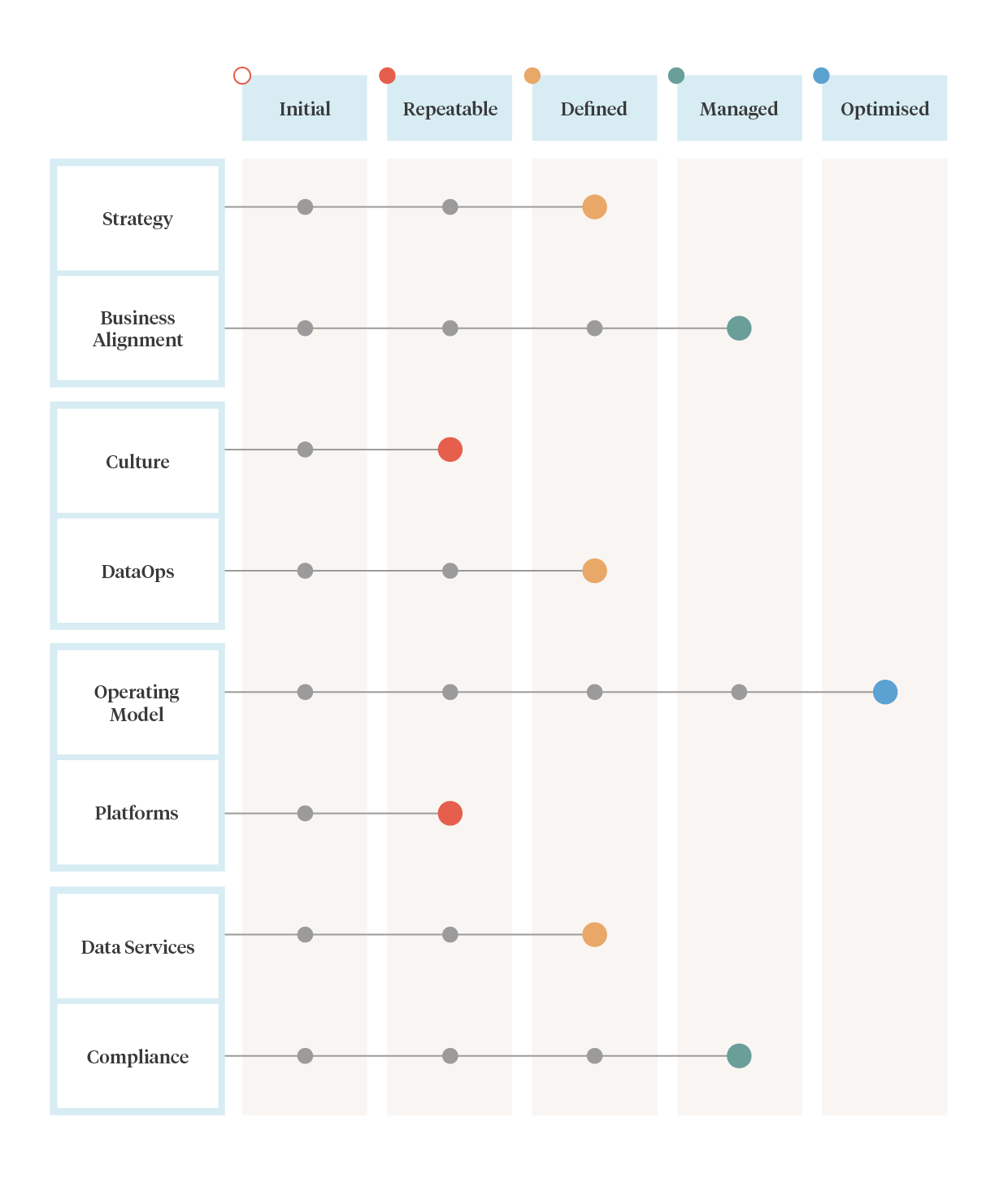
Many businesses today consider data as a major asset and look to utilise it to generate further value for their organisation. In many cases, however, the setup of a data practice or initiation of a data transformation programme ends up being both inefficient and costly.
As a result, we find ourselves asking - what is impacting these programmes and are these challenges avoidable?
Read next: Five principles of a successful modern data architecture
At Credera, some of the most common issues that we have come across within organisations include:
Lack of a clear vision and strategy for data within the organisation. Without understanding how the data will be used by the business (generally via business use cases) and implemented by technology, transformation programmes can become substantially more complicated and expensive to run.
Clear ownership and accountability is another factor which affects the success of any transformation programme. This generally stems from poorly defined operating models and employees not having a complete understanding of their roles and responsibilities.
Failure to adapt to new technology paradigms, where poor utilisation of tooling can lead to inconsistent metadata capture and storage leading, reducing the value of the data being analysed as a result. The Cloud is also a disruptive driver of new data architectures, with new approaches (such as data mesh) implemented in leading companies. There is a risk of being left behind with traditional architectures that are bloated and static.
Inadequate understanding and implementation of data management– for example, data quality, metadata, master & reference data, and governance. An organisation with an inconsistent approach to data quality can end up making incorrect decisions and spend large amounts of money undoing them.
Failure to manage the change in data culture can leave employees unsure about the data transformation that has occurred and unwilling to follow new policies, procedures, or standards. This is one of the more intangible issues but it is an important one to give thought to because there is little point in developing a new platform or data solution if the people you are building it for are not going to use it.
How can we mitigate the impact of these issues?
The most effective approach is to conduct a Data & Analytics Maturity Assessment within your data practice or programme. An effective maturity assessment would look to understand and capture your existing data capabilities, from strategy and platforms to compliance and culture. It would provide insight into any existing gaps and where issues may arise from any planned or inflight data transformation programme.
A Data & Analytics Maturity Assessment should be able to evaluate each capability by examining:
Practices: Ensuring that consistent repeatable processes, policies, and procedures are in place for data;
Adoption: Ensuring that people are engaged with and contributing to these practices;
Auditable: Ensuring the right documentation and evidence is in place to back up the capabilities.
An assessment should ultimately act as a baseline for the organisation, allowing it to understand the gaps within data programmes, processes, and technology. This would then be supplemented with a benchmark comparison to assess how much work is required to meet the same standards as the current industry. It would also feed into a roadmap on how to fix these gaps as well as linking to the overall data strategy. How does Credera tackle data maturity?

The model pictured above is an example of the Credera Data & Analytics Maturity Assessment, which is a blend between best practice, Credera expertise, and industry standards. Generally, an initial two-to-three week maturity assessment would be recommended. This will help to give an understanding of the current state of data & analytic capabilities whilst providing critical feedback. Depending on the results of this assessment, a further deep dive can be conducted via an official DCAM or DMBoK maturity assessment and linked to an industry benchmark.
If you are interested in learning more about Credera Data & Analytics Maturity Assessments or wish to arrange one, please get in touch with one of our experts.
Contact Us
Ready to achieve your vision? We're here to help.
We'd love to start a conversation. Fill out the form and we'll connect you with the right person.
Searching for a new career?
View job openings